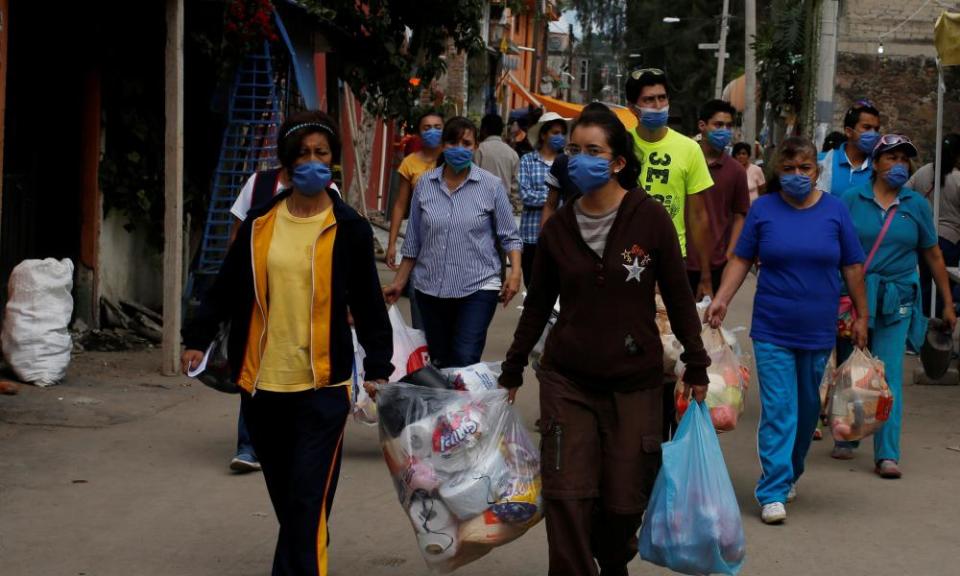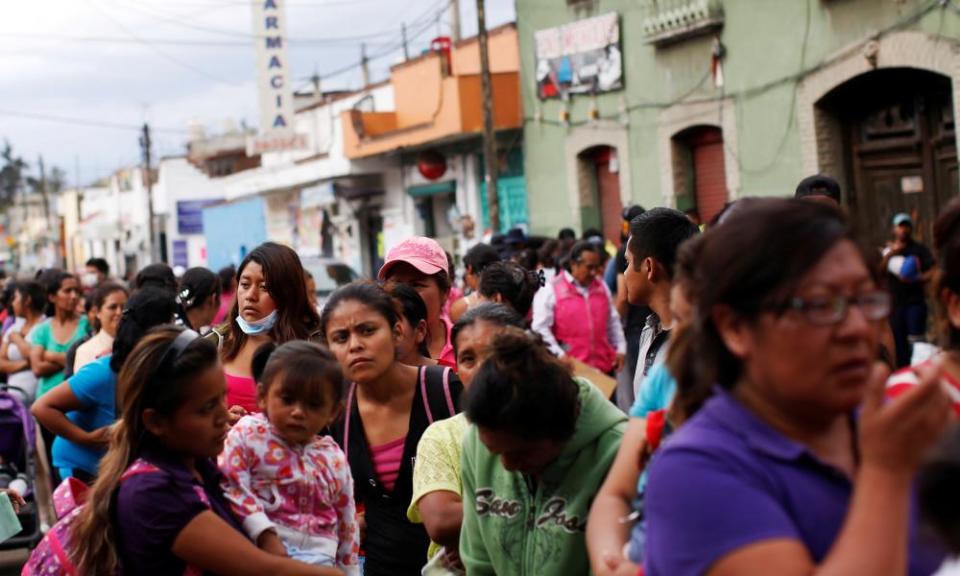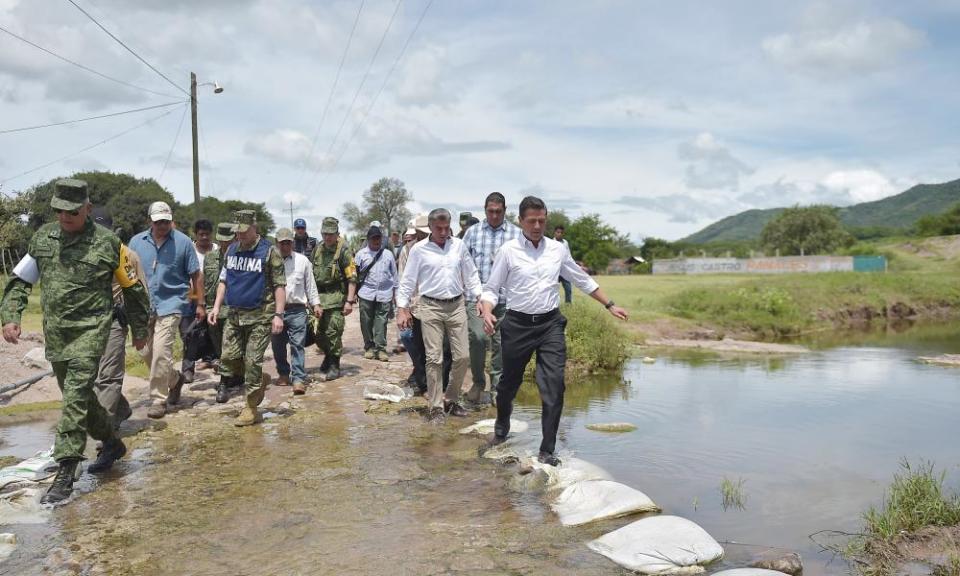Anger at response to Mexico earthquake could bring political aftershocks
Patchy provision of aid and perceived lack of engagement by senior politicians have seen elected officials booed or even chased out of stricken neighborhoods

Two days after Rosario Islas’s cinderblock shack collapsed in Mexico’s massive earthquake last week, a group of political operatives turned up at her ruined home, in the borough of Xochimilco in the south of the capital.
They had food, water and building materials – but before they would hand anything over, they demanded Islas show her government-issued voter ID.
Parties often use such information to track potential voters – and even to sign them up as members without their knowledge. But Islas was unable to comply.
“It told them it was buried under the rubble,” she said. “What little we had was all lost.”
The party operatives moved on – taking their relief packages with them.
Mexicans have responded to last week’s 7.1 magnitude earthquake with an outpouring of neighborly charity, civic activism and national pride.
But some politicians and public officials have been accused of trying to take advantage of a tragedy that has left more than 300 dead and many more homeless.
The contrast has caused outrage in a country where corruption scandals and pervasive impunity have fueled a deep mistrust of the political class and the state structure.
Such is the depth of skepticism that some relief workers went out of their way to stress that they were not affiliated with any grouping.
On a recent morning, a group of young people from another Mexico City neighborhood brought blankets, building materials and food to Xochimilco, a poor municipality best known for its network of canals and artificial islands.
“We’re not from any political party,” said the volunteers’ leader Víctor Hugo Arzate, a consultant.
Arzate’s caution was probably well-advised: several politicians have been jeered when touring earthquake-hit areas. Last week, President Enrique Peña Nieto was booed by students as he toured a damaged town in his home state.
“Grab a shovel,” shouted one of them.

In Islas’s community of San Gregorio Altapulco, where 13 people died, locals ran off the Xochimilco borough chief, Avelino Méndez, last Thursday, chasing him through the streets and pelting him with stones.
Locals say that much of the immediate disaster response concentrated on richer parts of the capital and official help was slow to reach Xochimilco.
“There hasn’t been any assistance from the borough, the Mexico City government or the federal government,” said Sergio de los Santos, one of the many small farmers in San Gregorio, who grow lettuce, spinach and greens on artificial islands known as chinampas.
Other grievances with local officials predate the earthquake – the rutted road into town, poor water service and too many unkept campaign promises – but the earthquake brought such frustrations to a head, said De los Santos.
“They ran off the borough chief because he hasn’t done anything.”
If the disaster prompted an outbreak of national unity, it has also revealed the depth of discontent with the country’s political class.
Mexico’s political parties were due to receive roughly £165m in public funding in 2018, an election year, but following calls on social media from activists and celebrities, all the main groupings have pledged to divert part of the money towards earthquake relief instead.

Yet, few of the politicians have got their hands dirty.
“You haven’t seen a single cabinet member hauling a bucket of rubble away from a building,” said Adrián Rueda, a local political columnist.
In the state of Morelos, one of the regions closest to the quake’s epicenter, Catholic bishop Ramón Castro accused the state government of diverting aid packages so that it could claim credit for the supplies.
Morelos’s governor, Graco Ramírez, denied the allegations, but was jeered by crowds as he toured the state on Sunday.
Some have seen echoes of Mexico City’s catastrophic 1985 earthquake, in which thousands died and survivors were left to fend for themselves in the face of an inept federal government response.
That episode indirectly led to a political upheaval in Mexico City, where the left won power in 1997 and has ruled ever since.
Some analysts believe that the 2017 earthquake could bring about similar change in the country’s politics.
Ilán Semo, a historian at the Iberoamerican University, said that issues such as housing and reconstruction will come to the fore in next year’s election campaign and could galvanize voters to create new political organizations.
But he warned that the traditional parties would want to prevent such a development. “They don’t want people to organise over this,” he said.

